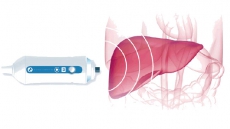The cells that control our rhythms of sleep and wakefulness may have first evolved in the ocean - hundreds of millions of years ago - in response to pressure to move away from the sun, shows a new study.
The researchers derived this conclusion from their findings that a hormone that governs sleep and jet lag in humans may also drive the mass migration of plankton in the ocean.
"The fascinating picture emerges that human biology finds its roots in some deeply conserved, fundamental aspects of ocean ecology that dominated life on the Earth since ancient evolutionary times," said lead researcher Detlev Arendt from the European Molecular Biology Laboratory (EMBL) in Heidelberg, Germany.
The molecule in question, melatonin, is essential to maintaining our daily rhythm and the scientists have discovered that it governs the nightly migration of a plankton species from the surface to deeper waters.
"We found that a group of multitasking cells in the brains of these larvae that sense light also run an internal clock and make melatonin at night," Arendt explained.
"So we think that melatonin is the message these cells produce at night to regulate the activity of other neurons that ultimately drive day-night rhythmic behaviour," Arendt noted.
The findings indicate that melatonin's role in controlling daily rhythms probably evolved early in the history of animals, and hold hints to how our sleep patterns may have evolved.
To find out the role of melatonin in other species and how it evolved to promote the task of sleep, the researchers turned to the marine ragworm Platynereis dumerilii.
The researchers discovered a group of specialised motor neurons that respond to melatonin.
Using modern molecular sensors, they were able to visualise the activity of these neurons in the larva's brain and found that it changes radically from day to night.
The findings were published online in the journal Cell.






